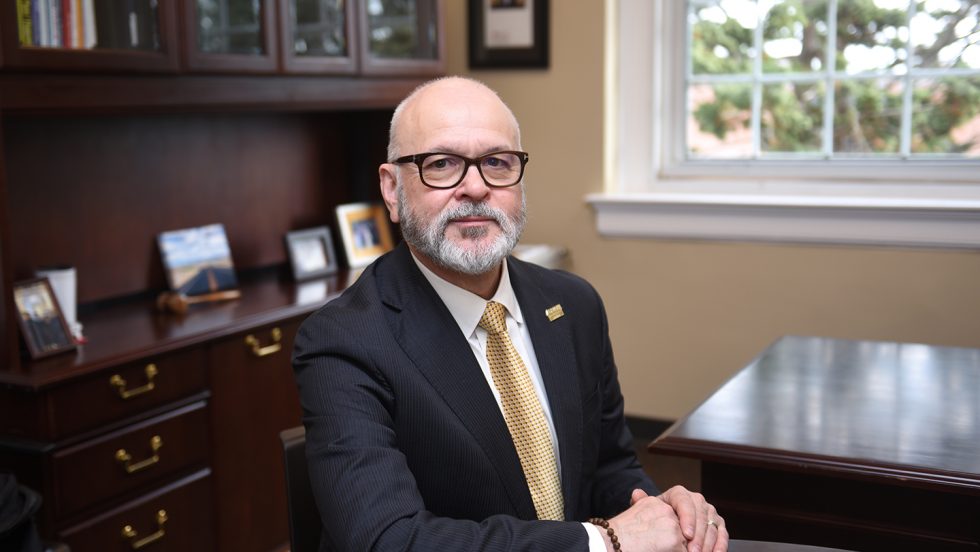
The path to earning a bachelor's degree doesn't always run smoothly. Sometimes students are sidelined by personal responsibilities, or they have a change of heart or a career opportunity.
The Panther Potential Program, offered by Adelphi’s College of Professional and Continuing Studies, was created to help students who left school be readmitted and earn their degrees quickly and economically.
Andy Atzert, dean of the College, tells us why the program was created, the support offered to nontraditional students and how students can get life experience credit.
What was the driving force and inspiration behind the Panther Potential Program?
The driving force was actually President Riordan, who asked CPCS to get the program started, and which I was more than happy to do. She and I are both inspired by the fact that too many undergraduate students—not only at Adelphi but across the country—encounter personal and financial difficulties that force them to drop out of college. We wanted to find a way to encourage former Adelphi students to return to complete their degrees and to support them along the way.
What are some of the anticipated outcomes, over time, for participants?
People who earn a bachelor’s degree average 42 percent higher lifetime earnings over people who complete some college but no associate degree, and 34 percent higher earnings than people who have only an associate degree. Aside from the obvious economic benefit, many people who return to successfully complete their bachelor’s degrees report a tremendous sense of accomplishment, along with the pride of being able to serve as a role model for others, such as family members.
How does the program support nontraditional students?
CPCS has a team of dedicated advisers who are skilled at working with the special needs of returning students. They help to create a specific plan for degree completion, leveraging the convenience of our online, evening and weekend courses—which is important for many returning students, who tend to work full time and have family and community responsibilities. Our advisers work with students from the time they are considering a return to college until the day they graduate, helping them navigate issues with financial aid, registration, need for tutorial support, etc.
How can students get credit for life experience? Can you speak to the value of investing in one’s educational future? Can you elaborate on the credit for life experience component?
Many returning students have had significant professional experience since leaving Adelphi, and under CPCS’s Prior Learning Assessment (PLA) program, we are able to evaluate whether this experience can count toward college credit, thereby reducing both cost and time to completion. The important thing to know is that not every experience in life is eligible, only that which we determine to be equivalent to college-level learning and related to the courses in our programs.
In making these determinations, we follow the best practices for PLA that have been established by the American Council on Education and the Council for Adult and Experiential Learning. Some kinds of experience can automatically be accepted for credit—for example, certain training programs offered by the military or for EMTs. Credit can also be by examination, either through the College Level Examination Program (CLEP) or through an examination or project overseen by an Adelphi professor.
Finally, we can provide credit for internally offered company training programs and are working with employers and our faculty at Adelphi to develop relationships with specific employers.
So, returning students may have undergone significant employer-sponsored training that potentially could count toward college credit.